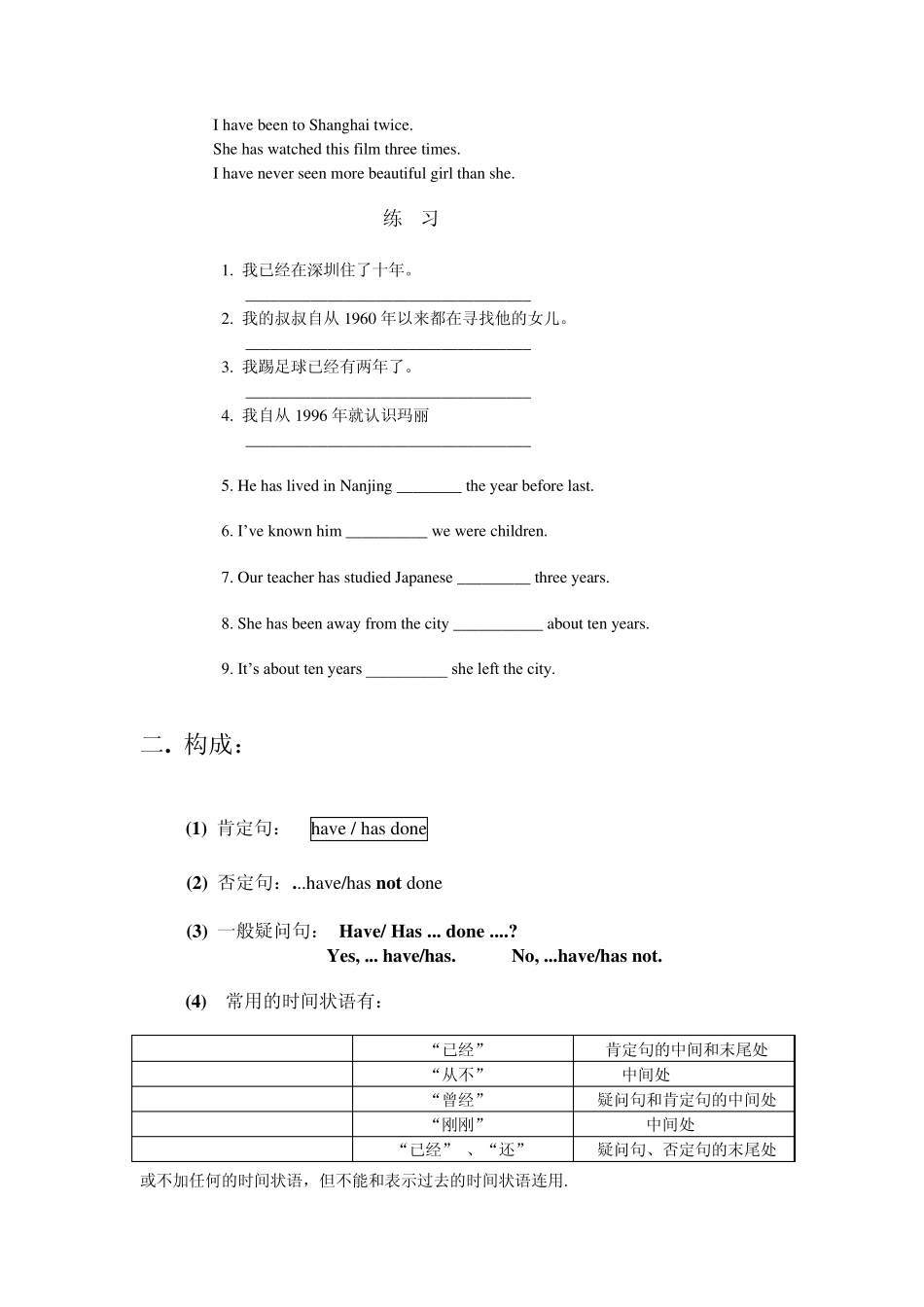现在完成时 一. 用法: (1)动作发生在过去,强调对现在的影响。 与一般过去时的区别: 强调过去—一般过去式 强调对现在的影响---现在完成时。 试 比 较 : I have lost my new book. 我把新书丢了。(现在还未找到) I lost my new book yesterday. 我昨天把新书丢了。(昨天丢的,现在找到与否没说明) My mother went to Shanghai. Where is your mother? ---She has gone to Shanghai. . I didn’t have breakfast. I haven’t have breakfast yet. ( 2) 动 作 发 生 在 过 去 某 个 不 确 定 的 时 间 , 但 对 现 在 有 某 种 影 响 和 结 果 。 常被 just、already、 yet 等副词修饰。 如: --Have you had lunch yet? --Yes, I have. I've just had it. 你(已经)吃午饭了吗? 我刚刚吃过。(现在我不饿了) (3)现在完成时表示未完成。动作从过去延续到现在,还可能以后继续。通常和带有 for 和 since 等表示一段时 间 的 状语。 He has been in the army for ten years. I have studied English since 1980. ( 4) 表示说话前发 生 过 一次或多次的 动 作 , 现 在 成为一种 经验, 一般译为汉语“过 ”, 表示次数:一次 once; 二次: twice, 三次:three times… , ever, never等时 间 状语。 如: I have been to Beijing twice.我去过北京二次。 I have been to Shanghai twice. She has watched this film three times. I have never seen more beautiful girl than she. 练 习 1. 我已经在深圳住了十年。 ___________________________________ 2. 我的叔叔自从1960 年以来都在寻找他的女儿。 ___________________________________ 3. 我踢足球已经有两年了。 ___________________________________ 4. 我自从1996 年就认识玛丽 ___________________________________ 5. He has lived in Nanjing ________ the year before last. 6. I’ve known him __________ we were children. 7. Our teacher has studied Japanese _________ three years. 8. She has been away from the city ___________ about ten years. 9. It’s about ten years __________ she left the ...


